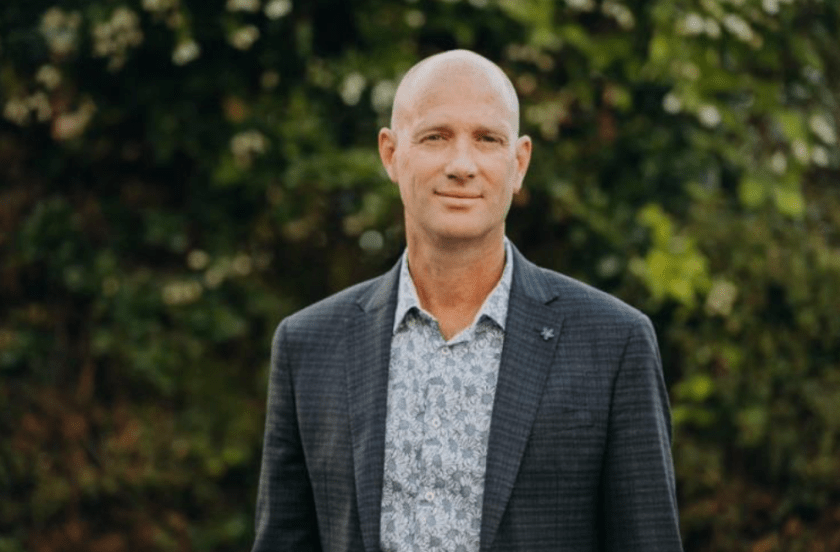What if there was a way to extend both lifespan and healthspan?
Although people worldwide are enjoying longer lives, their overall health isn’t keeping pace. Despite an increase in lifespan, our health isn’t improving in tandem.
Greg Macpherson, the visionary behind SRW Laboratories, is a futurist, author, biotechnologist, and pharmacologist with over a decade of dedicated research into cellular ageing.
Unlike conventional methods that address ageing symptoms reactively, SRW Laboratories takes a distinctive approach. Their range of supplements targets the root causes of ageing at a cellular level, aiming to halt the ageing process before it manifests.

We spoke to Greg to learn more about the ageing process and what hallmarks should be considered.
Greg, can you share with us what the nine hallmarks of ageing are, and which ones can be reversed or improved?
The nine Hallmarks of Ageing are:
- Genomic instability
- Telomere attrition
- Epigenetic alterations
- Loss of proteostasis
- Deregulated nutrient-sensing
- Mitochondrial dysfunction
- Cellular senescence
- Stem cell exhaustion, and
- Altered intercellular communication.
Recently, there have been another 3 new Hallmarks that address inflammation, dysbiosis and macroautophagy. They are not so much as new Hallmarks, but a clarification of the earlier Hallmarks.
Each Hallmark is a complex subject in its own right but at a top level you can split them into three areas; How well our DNA is functioning, how well our levels of energy production in our cells are holding up, and how well our levels of cellular housekeeping and repair are functioning.
Each of these decline at different times as we age and recent research has shown how we can support them at a cellular level so that we age healthier for longer.
How can clinicians and the general public shift the perspective on ageing to make it more of a health priority?
I think this area is going to take time as it is a complex subject and there is a lot of education required. But, over time, the subject of positive ageing and slowing it down will be accepted by the wider population.
It is a very important subject as it turns out that all the diseases we associate with getting older like Parkinson’s and Alzheimer’s disease, cancer and metabolic conditions like type 2 diabetes are actually syndromes of cellular ageing. If we can slow ageing, then we can slow the development of these diseases, which means that we will all be healthier for much longer than ever before.
This subject will be seen more and more over the decades ahead as researchers develop nutraceutical and pharmaceuticals that slow ageing.
Countries will get behind the movement as when they have a healthier population that is productive for longer and not placing a burden on the health system, it will then give that country many, many benefits.
What are Zombie Cells?
Zombie Cells are cells that have moved into a stage called cellular senescence. It is a fascinating cellular response that occurs as our cells age or face significant damage from internal and external stressors.
Throughout our life, our cells repair themselves whenever they encounter damage, be it from environmental factors or the natural wear and tear of life. This repair work is crucial for our survival and well-being, preventing our bodies from succumbing to premature damage and deterioration.
When a cell becomes a zombie cell it secretes inflammatory molecules to attract immune cells to come and remove them.
Unfortunately, as we age we get the combination of more zombie cells and an immune system that becomes fatigued; meaning we can’t clear them like we did when we were younger. In some cases, some may harbour up to 20 times more senescent cells in older individuals compared to younger ones.
Too many senescent or zombie cells can cause problems, potentially affecting tissue function and contributing to and accelerating the ageing process.
Zombie cells have been associated with diseases affecting the lungs, the kidney, the liver, and other conditions like obesity-associated metabolic syndrome, type I and II diabetes, atherosclerosis, as well as Alzheimer’s and Parkinson’s diseases.
Read the latest issue of SPA+CLINIC below:
There are 5 ways you can catch up with SPA+CLINIC
- Our quarterly print magazine, delivered to your door. Subscribe here.
- Our website, which is updated daily with its own completely unique content and breaking news.
- Our weekly newsletter – free to your inbox! Subscribe here.
- Our digital magazine – click here to view previous issues.
- Our social media – see daily updates on our Instagram, Facebook & Linkedin




